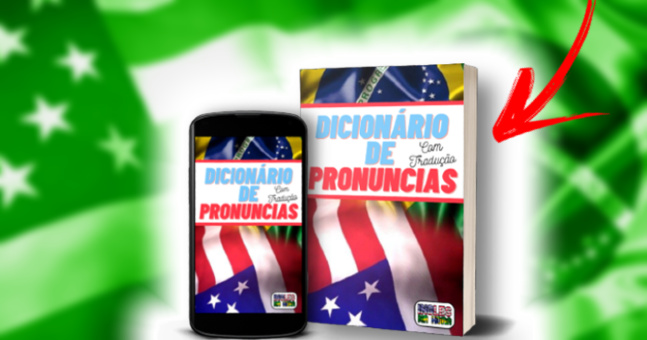Verbos em Inglês com Exemplos e Tradução

Conheça os principais Verbos em Inglês no tempo presente, passado e futuro, com tradução e explicação detalhada!
Dessa forma, você irá aprender as palavras que representam ações comuns em inglês para não confundir mais.
Verbos em Inglês
Verbos são como chamamos as “ações” em frases. Eles representam que na frase existe uma ação sendo realizada, no presente, presente continuo, passado ou futuro.
Isso serve para compreendermos como as ações entre os sujeitos servem de interação um com o outro.
Existem diferentes formas de encontrar os verbos numa frase, sendo principal, auxiliar ou composto, podendo ser um pouco complicado de assimilar a principio.
Atenção pois muitos verbos possuem diferenças estruturas e até mudam completamente dependendo do tempo verbal, o que pode confundir iniciantes!
Lembre-se também que existe o verbo auxiliar DO, que pode servir de estrutura para colocar uma frase no passado, com o tempo verbal DID.
Tempos Verbais

Os tempos verbais em inglês são formas gramaticais utilizadas para indicar quando uma ação ocorreu (passado), está ocorrendo no momento da fala (presente) ou ocorrerá no futuro. Existem três tempos verbais principais:
- Presente: O tempo verbal que indica ações que estão acontecendo no momento da fala ou situações que são habituais ou permanentes. Para a maioria dos verbos, a forma do presente simples é igual à forma base do verbo. Por exemplo: “He plays guitar every day.” (Ele toca violão todos os dias).
- Passado: O tempo verbal usado para descrever ações ou eventos que já aconteceram. Para formar o passado simples, geralmente acrescenta-se “-ed” ao verbo (verbos regulares). Por exemplo: “She studied for the test yesterday.” (Ela estudou para a prova ontem). E para verbos irregulares, deve-se fazer a alteração da palavra, que é específica para cada uma.
- Futuro: O tempo verbal usado para expressar ações que ainda não aconteceram, mas que ocorrerão em algum momento posterior ao presente. Geralmente, usa-se o verbo “will”, “gona” ou “going to” antes do verbo principal para formar o futuro simples. Por exemplo: “I will travel to Paris next month.” (Eu viajarei para Paris no próximo mês).
Abaixo, irei deixar alguns dos principais verbos em inglês, com suas traduções, diferentes tempos e exemplos para você memorizar.
Do – Fazer
Lembre-se que o verbo DO também tem função estrutural em algumas frases, servindo de verbo auxiliar.
Ele também possui conjugações diferentes para HE, SHE e IT, sendo utilizado como DOES.
Presente: I do what I want to do
Estrutural: I do remember that day
Passado: I did nothing wrong
Futuro: I will do the homework after 8 P.M.
Walk – Andar
Presente: I walk home every day
Passado: I walked home yesterday
Futuro: I will walk home tomorrow
Go – Ir
Presente: I go there sometimes
Passado: I went there these week
Futuro: I will go there on the saturday
Eat – Comer
Presente: She likes to eat with me
Passado: I ate the last piece of cake
Futuro: We gona eat pizza tonight
Sleep – Dormir
Presente: I don’t like to sleep
Passado: He slept in the sofa tonight
Futuro: She in going to sleep in her friend’s house
Drink – Beber
Presente: I don’t drink beer usualy…
Passado: They never drank energy drink before
Futuro: … But i will drink with you this time
Talk – Falar
Presente: You talk a lot about these things
Passado: I did talked with him today, why?
Futuro: Don’t forget that I will talk with her soon
Read – Ler
Presente: She likes to read romance books
Passado: She did read that one
Futuro: I will read more tomorrow
Write – Escrever
Presente: My son know how to write already
Passado: He wrote it right here
Futuro: They will write the rules down soon
Lean – Aprender
Presente: I think i can lean that as well
Passado: He learned pretty soon
Futuro: Don’t worry, they will learn
Run – Correr
Presente: I like to run, for no reason
Passado: He ran home early this morning
Futuro: We will run together in the race
Try – Tentar
Presente: I try very hard every day
Passado: I didn’t tried enough
Futuro: I will try my best
Watch – Assistir
Presente: I like to watch YouTube videos
Passado: I watched the whole movie
Futuro: We are going to watch the Barbie movie
Listen – Ouvir
Presente: Don’t listen to him, he is liyng to you
Passado: I never listened this music before
Futuro: I will listen to it when I get home
Heard – Escutar
Presente: I can’t hear you very well
Passado: He heard you two talking about pizza
Futuro: They gona hear from me
See – Ver
Presente: I can see properly now
Passado: I saw you in the dining room
Futuro: We are going to see if it is real
Touch – Tocar
Presente: Please, don’t touch me
Passado: They touched on my collection
Futuro: I will never touch without permision
Bring – Trazer
Presente: Please, bring some candy for the kids
Passado: She brought candys for us
Futuro: I am gona bring more candys
Verbos Compostos em Inglês
Os verbos compostos, são verbos que fazem uso de outro termo em inglês para completar seu significado.
Dessa forma, eles mudam completamente quando usados em conjunto, diferente de suas partes usadas separadamente.
Eles são chamados de Phrasal Verbs em inglês, sendo parte importante da comunicação e uso dos verbos em inglês.
É fácil de identifica-los, sempre fazendo uso de uma ação principal e um termo que o modifica.
Entretanto, algumas vezes eles aparecem distantes na frase, por contarem o sujeito ou substantivo a quem eles se referem no meio.
Show up – Aparecer
Presente: Please, don’t show up with that T-shirt
Passado: He didn’t showed up for class
Futuro: I am gona show up late
Grow up – Crescer
Presente: My son is growing up fast
Passado: She grew up in that moment
Futuro: He will grow up health and strong
Turn off – Desligar
Presente: Can you please turn off the TV?
Passado: She didn’t have turned off the TV
Futuro: I will turn off the TV soon
Turn on – Ligar
Presente: Can you please turn on the TV?
Passado: He had turned on the TV
Futuro: I will turn on the TV for you
Went off – Disparar
Presente: The alarm only went off if someone brokes in
Passado: The alarm went off at 3 A.M.
Futuro: The alarm will went off porperly?
Run out – Acabar
Presente: I hope it don’t run out soon
Passado: We ran out off stock yesterday
Futuro: It will run out again
Calm down – Acalmar
Presente: You need to calm down
Passado: She calmed her self down alredy
Futuro: You will calm down soon
Keep going – Continue
Presente: Just keep going, don’t give up
Passado: They keept going despite all the trouble
Futuro: I will keep going, no mether what happens
Give up – Desistir
Presente: Never give up on your dreams
Passado: I gave up a long time ago
Futuro: Careful, or you will give up soon
Conclusão Verbos em Inglês

Esses são alguns dos principais verbos em inglês, utilizados dia após dia por americanos e fluentes em inglês.
Espero que você tenha aprendido essa parte importante do vocabulário em inglês. Lembre-se sempre de conferir outros artigos relacionados ao tema que você esta vendo atualmente.
Assim, você expandirá seu conhecimento e estará cada dia mais próximo da sua fluência.
Mas cuidado para não ficar estudando infinitamente e nunca aprender inglês de verdade… aprenda como evitar isso vendo este vídeo rápido.
Abraços,
Walace.








0 Comments